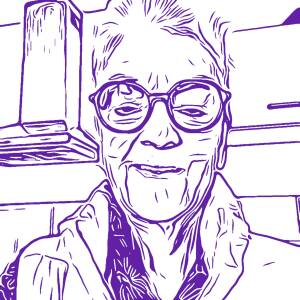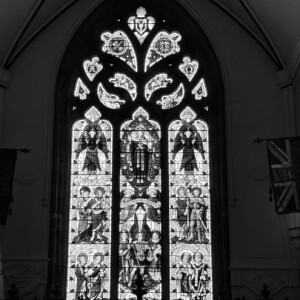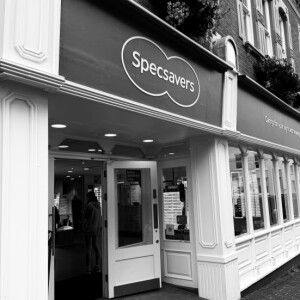Where would we be without glass…
My blip shows one of the stained glass windows in the Town Church above a clear glass door.
The clear glass door was installed outside the old wooden doors a few years ago. This lets in light while keeping the church warmer in cold weather so very useful. There are stained glass windows all around the church which display scenes from the Bible as well as letting light in.
In extras I have included a pic of another stained glass window and a pic of my favourite shop, Specsavers.
As well as having clear glass windows to let light into the shop a lot of Specsavers business involves glass. Obviously hearing aids and contact lenses are not made of glass but some specs are. I’m not sure what proportion of specs are plastic compared to the heavier glass these days but i assume so
Me still are and we still call them glasses. And the equipment used for eye examinations contain glass.
Those who follow me regularly may be aware that specs are my greatest indulgence and I think I might pop in there tomorrow. Just to browse of course but I do have my eye on a green specs…
So my saying of the day has to be ‘I have my eye on something’. The only comment I could find about the origin of this was AI generated so it seems this AI has better luck with Google than I do! Here’s what it says ( is ‘it’ the correct pronoun or does an AI have a choice as humans now do?)
The idiom "I've got my eye on something" or "having your eye on something" means that you are intensely focused on something, either wanting it or watching it closely. While there's no single verifiable origin for the exact phrase, the concept of using "eye" to represent attention or observation is quite old and rooted in the way we perceive and understand the world.
Here's a breakdown of how the phrase evolved:
Synecdoche:
The use of "eye" in this idiom is an example of synecdoche, where a part (the eye) stands for a whole (the entire process of seeing or being aware).
"Caught my eye":
The phrase "something caught my eye" is a common way to express that something grabbed your attention. This suggests a link to the broader idea of having your eye on something, indicating intense focus.
"Keep an eye out for":
The idiom "keep an eye out for" has a documented history, dating back to the late 1800s in its original form and mid-1700s with a variant, according to Dictionary.com. This phrase directly relates to watching carefully for something specific.
Evolution of "gaze":
It's possible that the phrase "having your eye on something" evolved from phrases that included the word "gaze", like "caught my gaze". The idea of using "eye" to represent the whole process of seeing or paying attention is a natural progression from "gaze".
While the exact origin of the specific phrase is difficult to pinpoint, the concept of using "eye" to represent attention and observation is deeply rooted in the way we understand visual perception and language.



Comments
Sign in or get an account to comment.


